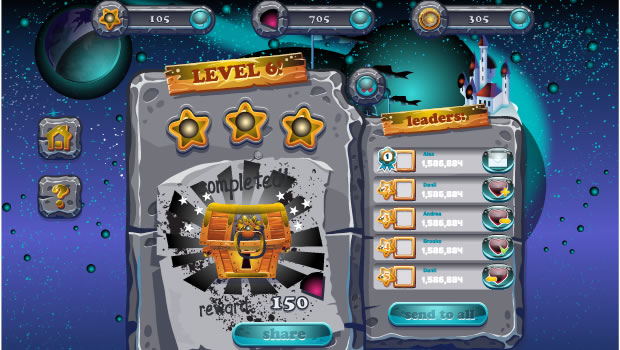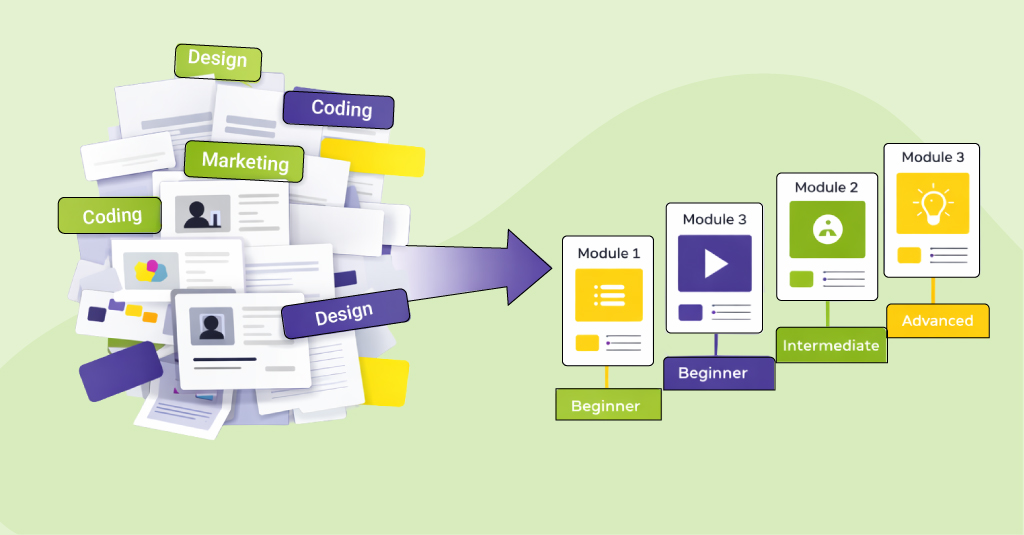As I mentioned in my previous post, we’re continuing to explore game mechanics that are apt for learning. While I mentioned three that are a ‘must-include’ in a learning game, the ones I’m about to mention two that aren’t quite at that level. However, adding these makes for a certain of gaminess in the interaction mix.
1. Levels – Yes, the ones we’ve seen in pretty much all games. Levels are essentially a method that all an increase in the difficulty of game-play. The better you do at one level, the higher the likelihood you’ll make it to the next. In commercial games, extra game-features or capabilities are unlocked as you progress through levels. As an example, being able to unlock more sophisticated ‘combos’ in a fighting games. Incidentally, combos are also a unique game mechanic in themselves. For a learning game designer, levels are just a motivational tool; something that lets learners brag about their ‘level’. Levels can be implemented in many ways, but the two most common models one finds in games are scalar, and exponential. Scalar models increase difficulty in the same measure, while exponential models use a logarithmic scale or similar scale. Levels modeled on exponential models are very difficult to play. For learning games like the https://no.slotzo.com/spilleautomater, it might make sense to stick to scalar models. I’ve also read about cyclical models which vary the difficulties between easy and hard, in a waveform of sorts.
As an aside, hardcore gamers will go to ridiculous extents to ‘level-up’, heard of the lady who was a level 111 in Farmville? A level 111 is beyond the point where the game rewards you with anything for play. Just goes to show that levels make a good motivational tool.
2. Reward Schedules – Is a framework through which varied types of rewards are delivered to a player. They could be points, prizes, badges, essentially any sort of reward. These are typically dependent on a ‘time’ and ‘method for delivery’. Current game development research suggests that there are two types of reward schedules:
a. Fixed interval schedules – Rewards given for playing the game; at a certain time say every 15 minutes. Not very engaging, especially right after getting a reward. Game play activity tends to rise towards the time a reward is expected. Farmville does a great job of this; you need to wait for crops to appear. While not exactly a fixed interval schedule, crops can only be harvested in a certain window of time; this can also be leveraged as a mechanic.
b. Variable interval schedules – This sort of schedule rewards players in a consistent way and is usually tied to game-play and not ‘time’ per se. This results in a constant game-play because the player isn’t sure about when they might receive a reward. While this differs from fixed interval schedule rewards as the game play doesn’t become cyclic as it does in that system of rewards. For example, if you wait for a rough duration of 15 minutes, you are rewarded with 50 gold coins. You can play all you like, but that reward will only happen when a certain time-period and game play cycles have elapsed.
For a more complete list of game mechanics (including ones I’ve discussed) check out: http://gamification.org/wiki/Game_Mechanics. If you’re interested in ‘gamification’ of day to day activities or creating games for varied purposes, please do contribute to this. Eventually, the wiki has potential to become a comprehensive reference for game designers and developers.



















